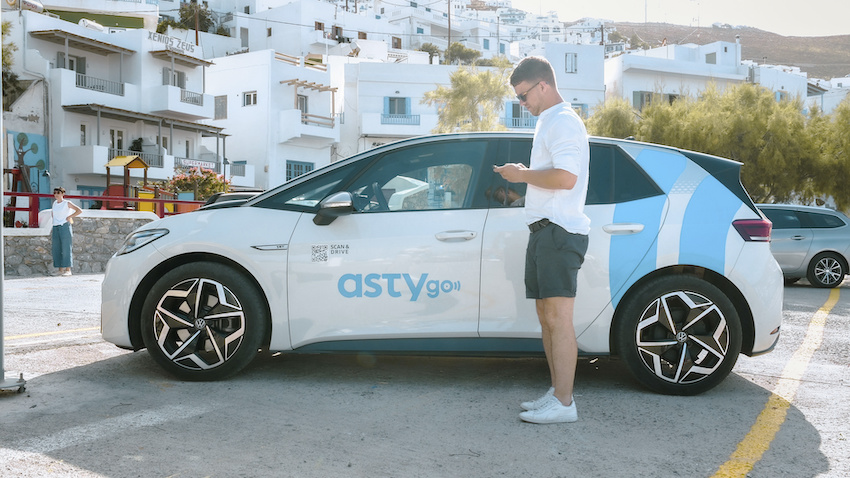Volkswagen starts electric mobility services on Greek island of Astypalea
Volkswagen has launched two fully electric mobility services on Astypalea as the manufacturer steps up the Greek island’s electrification.
The ridesharing service “ASTYBUS” and the vehicle sharing service “astyGO” have been put into operation and will replace conventional bus lines, improving mobility for residents and tourists.
Unlike the bus line, the mobility services will be in operation all year round and will connect many more places on the island. The ASTYBUS ridesharing service will start operation with five vehicles of the Volkswagen ID. Buzz once the model has been launched in autumn 2022. Until then, the service will be operated with the ID.4.
Via the vehicle sharing service astyGO, customers can rent electric cars from Volkswagen as well as e-scooters from SEAT MÓ and e-bikes from Ducati. All vehicles can be booked via smartphone and the integrated astyMOVE app.
The number of electric vehicles on Astypalea is growing continuously. After the police, airport authorities and the municipality switched to e-mobility last year, now Greece’s first electric ambulance is being added. A first e-taxi transports customers across the island and recently, the first private customer received his ID.3.
Herbert Diess, CEO of the Volkswagen Group: “The discussion about the shift from fossil fuels to renewables has gained new momentum in Europe. Volkswagen is a driver of change, leading the transformation to e-mobility in Europe. Here on Astypalea, we are introducing new mobility services as the next step towards the future of transportation. It’s exciting to see the project grow, with people willing to change their habits. It demonstrates that a rapid transformation to green mobility and green energy is feasible if businesses and governments work hand in hand.”
As part of the electrification project, Volkswagen has gradually transformed the current energy system to renewable energy from local sources. Now, a second solar system was put into operation, supplying the current e-fleet with green energy.
Furthermore, the Hellenic Republic has issued a call for tenders today for the further transformation of the energy system. By 2023, a new solar park will provide about 3 megawatt of green energy, covering 100% of the energy needed to charge the electric vehicles and more than 50% of the islands overall energy demand. By 2026, the new energy system will be further expanded to more than 80% of the total energy demand. Up until now, the island has been supplied with electricity from diesel generators.
Kostas Frangogiannis, Deputy Minister of Foreign Affairs for Economic Diplomacy and Openness, said: “The project of Astypalea reflects all the comparative advantages of today’s Greece, that is, how the traditional natural wealth and the precious human capital of the country, can, with the support of a political leadership facing the future and its challenges, with an open eye and with vision, bring the country to the world forefront. I am very proud of what we have achieved so far, for the citizens of Astypalea and for the whole country, especially at a time when the need to diversify and move away from traditional energy sources has become even more urgent, globally. A warm thank you to all the supporters of the effort, to the government, to the local authorities, to the business world and to the citizens who dare.”
